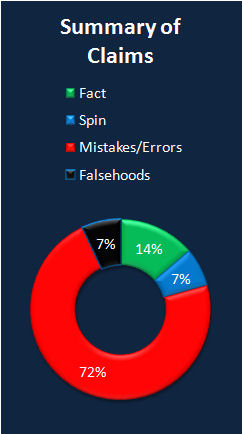
FAIR is a non-profit organization dedicated to providing well-documented answers to criticisms of the doctrine, practice, and history of The Church of Jesus Christ of Latter-day Saints.
| A FAIR Analysis of: "Questions All Mormons Should Ask Themselves" A work by author: Contender Ministries
|
| Claim Evaluation |
| Questions All Mormons Should Ask Themselves |

|

|
Anti-Mormon literature tends to recycle common themes. One popular approach over the years is for critics to ask a series of "questions" under the guise of sincerity, but with the ultimate aim of casting doubt upon faith or tripping up members of the Church.
Such tactics are not new; Jesus repeatedly faced questioners from among critics during His earthly ministry.
One set of questions that has made rounds is found at Contender Ministries. Entitled Questions All Mormons Should Ask Themselves, the list consists of 58 questions detailed and answered on this page.
In the questions, there may be two items after each question: Scripture reference and Other reference. These references are given as references for the actual questions by Contender Ministries; they are not provided by FairMormon as part of the answer.
There are a couple of interesting features to look for in this list. The first is that many of the questions don't just ask a question, they make an assertion. An example of this would be the question that person A asks person B: "Have you stopped beating your wife?" To answer "yes" or "no" is to agree to the assertion that at some point, you did beat your wife. This is the case with a question like question 15 below:
The assertion is that the Mormon church teaches that there is no eternal hell. Similarly, many of the questions start with a proposition - which must first be answered before the rest of the question has meaning. So, for instance, question 1:
Before the question can be meaningful, the first question must be answered in the affirmative. If you don't answer in the affirmative (as is the case with many of these questions that are actually assertions of LDS belief), then the rest of the question is largely meaningless. You can ask all sorts of things in this way without actually taking the responsibility for defending the implications of your questions.
A final point involves interpretation. When providing a biblical scripture as the backdrop for a question, these questions often assert or imply a specific reading or interpretation of the text. In many cases, the interpretation is bad. Isaiah, for example, lived at a time when Israelite religion was not strictly monotheistic in any sense. To read Isaiah's text as teaching some kind of strict monotheism does damage to the text, and if we (the respondents) disagree with the interpretation, it can change the question significantly (see for example questions 4 and 5).

FAIR is a non-profit organization dedicated to providing well-documented answers to criticisms of the doctrine, practice, and history of The Church of Jesus Christ of Latter-day Saints.
We are a volunteer organization. We invite you to give back.
Donate Now